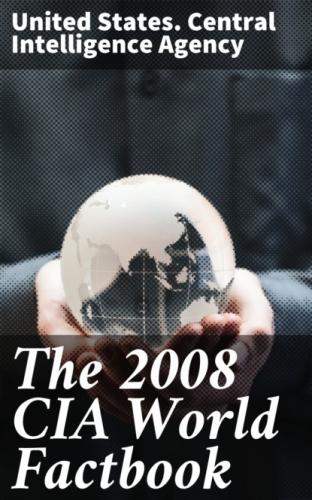Judicial branch:
BH Constitutional Court (consists of nine members: four members are selected by the Bosniak/Croat Federation's House of Representatives, two members by the Republika Srpska's National Assembly, and three non-Bosnian members by the president of the European Court of Human Rights); BH State Court (consists of nine judges and three divisions - Administrative, Appellate and Criminal - having jurisdiction over cases related to state-level law and appellate jurisdiction over cases initiated in the entities); a War Crimes Chamber opened in March 2005 note: the entities each have a Supreme Court; each entity also has a number of lower courts; there are 10 cantonal courts in the Federation, plus a number of municipal courts; the Republika Srpska has five municipal courts
Political parties and leaders:
Alliance of Independent Social Democrats or SNSD [Milorad DODIK];
Bosnian Party or BOSS [Mirnes AJANOVIC]; Civic Democratic Party or
GDS [Ibrahim SPAHIC]; Croat Christian Democratic Union of Bosnia and
Herzegovina or HKDU [Marin TOPIC]; Croat Party of Rights or HSP
[Zvonko JURISIC]; Croat Peasants Party or HSS [Marko TADIC];
Croatian Democratic Union of Bosnia and Herzegovina or HDZ-BH
[Dragan COVIC]; Croatian Democratic Union 1990 or HDZ1990 [Bozo
LJUBIC]; Croatian Democratic Union 100 or HDZ100; Croatian Peoples
Union [Milenko BRKIC]; Democratic National Union or DNZ [Rifet
DOLIC]; Democratic Peoples Alliance or DNS [Marko PAVIC]; Liberal
Democratic Party or LDS [Rasim KADIC]; New Croat Initiative or NHI
[Kresimir ZUBAK]; Party for Bosnia and Herzegovina or SBH [Haris
SILAJDZIC]; Party for Democratic Action or SDA [Sulejman TIHIC];
Party of Democratic Progress or PDP [Mladen IVANIC]; Serb Democratic
Party or SDS [Mladen BOSIC]; Serb Radical Party of the Republika
Srpska or SRS-RS [Milanko MIHAJLICA]; Serb Radical Party-Dr.
Vojislav Seselj or SRS-VS [Radislav KANJERIC]; Social Democratic
Party of BIH or SDP [Zlatko LAGUMDZIJA]; Social Democratic Union or
SDU [Sejfudin TOKIC]; Socialist Party of Republika Srpska or SPRS
[Petar DJOKIC]
Political pressure groups and leaders:
other: displaced persons associations; student councils; war veterans
International organization participation:
BIS, CE, CEI, EAPC, EBRD, FAO, G-77, IAEA, IBRD, ICAO, ICCt, ICRM,
IDA, IFAD, IFC, IFRCS, ILO, IMF, IMO, IMSO, Interpol, IOC, IOM, IPU,
ISO, ITSO, ITU, ITUC, MIGA, MONUC, NAM (observer), OAS (observer),
OIC (observer), OPCW, OSCE, PFP, SECI, UN, UNCTAD, UNESCO, UNIDO,
UNWTO, UPU, WCO, WFTU, WHO, WIPO, WMO, WTO (observer)
Diplomatic representation in the US:
chief of mission: Ambassador Bisera TURKOVIC chancery: 2109 E Street NW, Washington, DC 20037 telephone: [1] (202) 337–1500 FAX: [1] (202) 337–1502 consulate(s) general: Chicago, New York
Diplomatic representation from the US:
chief of mission: Ambassador Charles L. ENGLISH embassy: Alipasina 43, 71000 Sarajevo mailing address: use embassy street address telephone: [387] (33) 445–700 FAX: [387] (33) 659–722 branch office(s): Banja Luka, Mostar
Flag description:
a wide medium blue vertical band on the fly side with a yellow isosceles triangle abutting the band and the top of the flag; the remainder of the flag is medium blue with seven full five-pointed white stars and two half stars top and bottom along the hypotenuse of the triangle
Economy
Bosnia and Herzegovina
Economy - overview:
Bosnia and Herzegovina ranked next to Macedonia as the poorest republic in the old Yugoslav federation. Although agriculture is almost all in private hands, farms are small and inefficient, and the republic traditionally is a net importer of food. The private sector is growing and foreign investment is slowly increasing, but government spending, at nearly 40% of adjusted GDP, remains unreasonably high. The interethnic warfare in Bosnia caused production to plummet by 80% from 1992 to 1995 and unemployment to soar. With an uneasy peace in place, output recovered in 1996–99 at high percentage rates from a low base; but output growth slowed in 2000–02. Part of the lag in output was made up in 2003–07 when GDP growth exceeded 5% per year. National-level statistics are limited and do not capture the large share of black market activity. The konvertibilna marka (convertible mark or BAM)- the national currency introduced in 1998 - is pegged to the euro, and confidence in the currency and the banking sector has increased. Implementing privatization, however, has been slow, particularly in the Federation, although more successful in the Republika Srpska. Banking reform accelerated in 2001 as all the Communist-era payments bureaus were shut down; foreign banks, primarily from Western Europe, now control most of the banking sector. A sizeable current account deficit and high unemployment rate remain the two most serious macroeconomic problems. On 1 January 2006 a new value-added tax (VAT) went into effect. The VAT has been successful in capturing much of the gray market economy and has developed into a significant and predictable source of revenues for all layers of government. Bosnia and Herzegovina became a full member of the Central European Free Trade Agreement in September 2007. The country receives substantial reconstruction assistance and humanitarian aid from the international community but will have to prepare for an era of declining assistance.
GDP (purchasing power parity):
$27.7 billion note: Bosnia has a large informal sector that could also be as much as 50% of official GDP (2007 est.)
GDP (official exchange rate):
$14.78 billion (2007 est.)
GDP - real growth rate:
6% (2007 est.)
GDP - per capita (PPP):
$6,100 (2007 est.)
GDP - composition by sector:
agriculture: 10.2% industry: 23.9% services: 66% (2006 est.)
Labor force:
1.026 million (2001)
Labor force - by occupation:
agriculture: NA% industry: NA% services: NA%
Unemployment rate:
45.5% official rate; grey economy may reduce actual unemployment to 25–30% (31 December 2004 est.)
Population below poverty line:
25% (2004 est.)
